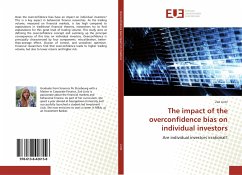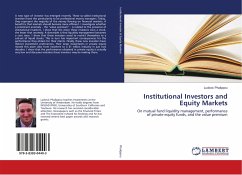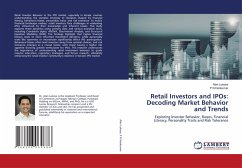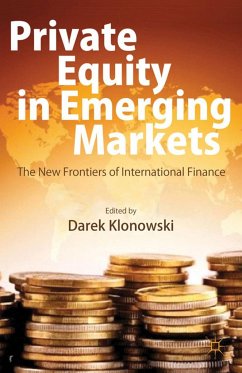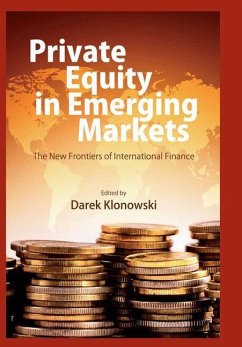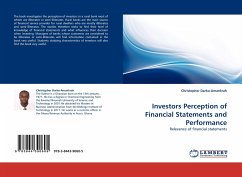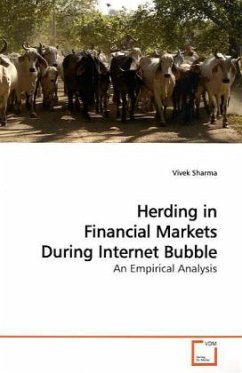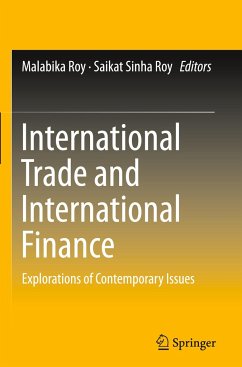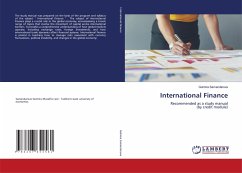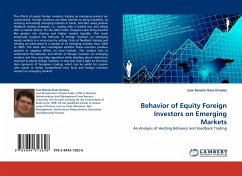
Behavior of Equity Foreign Investors on Emerging Markets
An Analysis of Herding Behavior and Feedback Trading
Versandkostenfrei!
Versandfertig in 6-10 Tagen
32,99 €
inkl. MwSt.

PAYBACK Punkte
16 °P sammeln!
The effects of equity foreign investors trading on emerging markets are controversial. Foreign investors are often blamed to bring instability, by entering and exiting emerging markets in herds, and also using positive feedback trading strategies, i.e., buying after a market rise, and selling after a market decline. On the other hand, foreigners also bring benefits like greater risk sharing and higher market liquidity. This book empirically analyzes the behavior of foreign investors on emerging equity markets in a cross-country setting. Tests of feedback trading and herding are performed in a ...
The effects of equity foreign investors trading on emerging markets are controversial. Foreign investors are often blamed to bring instability, by entering and exiting emerging markets in herds, and also using positive feedback trading strategies, i.e., buying after a market rise, and selling after a market decline. On the other hand, foreigners also bring benefits like greater risk sharing and higher market liquidity. This book empirically analyzes the behavior of foreign investors on emerging equity markets in a cross-country setting. Tests of feedback trading and herding are performed in a sample of 14 emerging markets from 2000 to 2005. The book also investigates whether these investors produce positive or negative effects on local markets. This analysis tries to understand the behavior and effects of foreign investors on emerging markets and thus may help regulators while deciding about restrictions imposed to equity foreign investors. It may also shed a light on the long-term dynamics of foreigners trading, which can be useful for anyone who wants to better comprehend how local and foreign investors interact on emerging markets.



